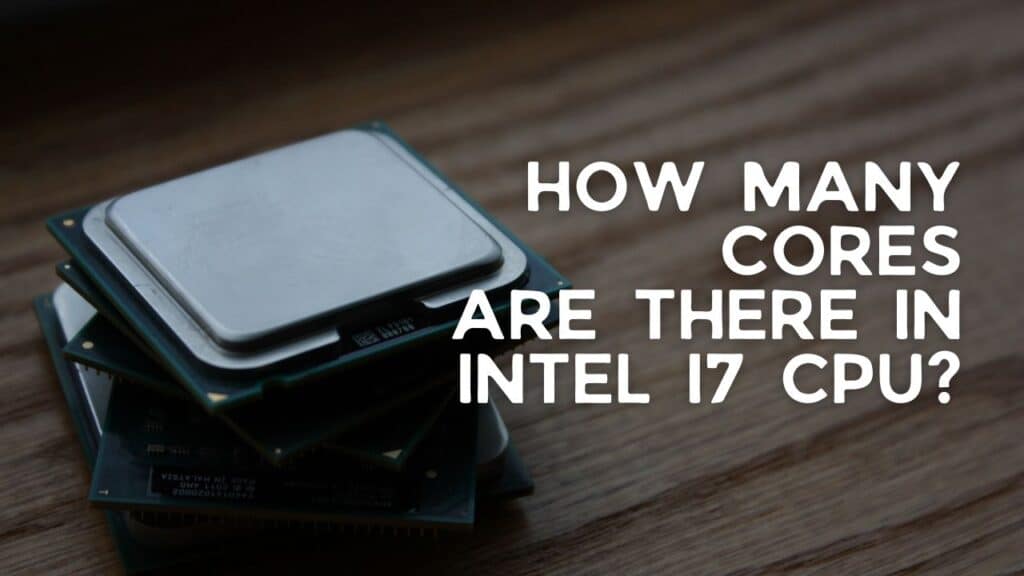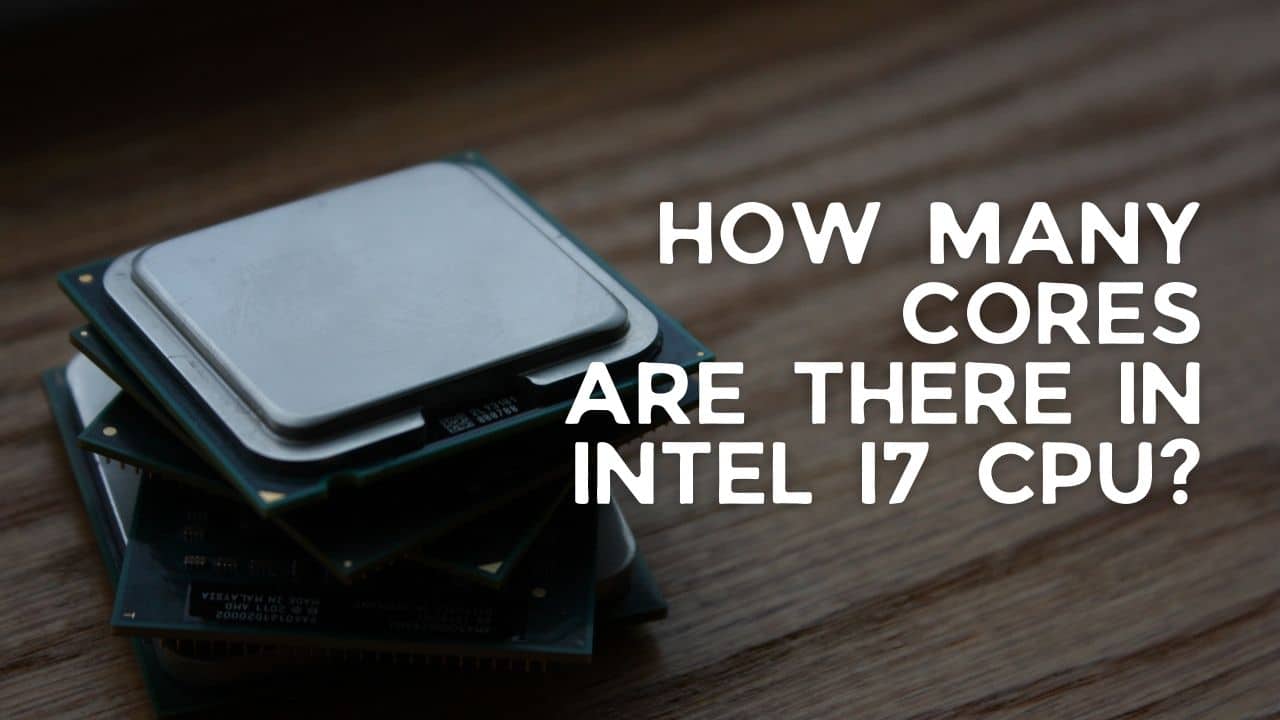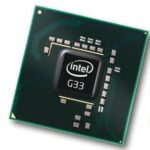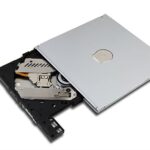As we talk about higher Intel Core CPU Lineups, we generally see that the number of cores increases. Also, the frequency, cache size, and various other things inside the CPUs improve. If we talk specifically about the Intel Core i7 CPUs, there is no definite number of cores. I mean to say that the number of cores will generally increase as we go with the higher generation i7 CPUs.
But, the number of cores in i7 CPUs starts from 2 cores. We are here talking about the first-generation Arrandale (6xx series) i7 CPUs which were released back in 2010. These CPUs are hard to find these days. But, you should start from the very beginning in order to understand the complete hierarchy.
The latest 12th generation Intel Core i7 CPUs come with 8 physical cores and 6 threads. With Intel’s technology called Hyper-threading, we convert the physical cores into logical cores by combining them with multiple task threads. This technology started to appear after the release of 5th generation Intel core CPUs i.e. Broadwell architecture.

List of all Intel Core i7 CPU cores
Let’s uncover all the Intel i7 CPU generations and see how many core and maximum frequencies they can offer. I am taking the Core i7 and Core i7 Extreme Edition CPU into consideration in this article.
| Intel Core i7 CPUs | Code name (Micro-Architecture) | Cores/Threads (Up to) | Socket | Maximum Frequency |
|---|---|---|---|---|
| 1st Generation | Arrandale Clarksfield Lynnfield Bloomfield Gulftown | 2,4,6 Physical Cores | BGA-1288 rPGA-988A LGA 1156 LGA 1136 | 2.67 – 3.6 GHz |
| 2nd Generation | Sandy Bridge Sandy Bridge-E | 4,6 Physical Cores | LGA 1155 | 2.8 – 3.6 GHz |
| 3rd Generations | Ivy Bridge Ivy Bridge-E | 4,6 Physical Cores | LGA 2011 | 2.5 – 3.7 GHz |
| 4th Generation | Haswell Haswell-E | 4,6,8 Physical Cores | LGA 1150 LGA 2011 | 2 – 4 GHz |
| 5th Generation | Broadwell-H Broadwell-E | 4,6,8,10 Physical Cores | LGA 1150 BGA-1364 LGA-2011-3 | 3 – 3.6 GHz |
| 6th Generation | Skylake | 4(8), 6(12), 8(16) Physical Cores(Threads) | LGA 1151 LGA 2066 | 2.4 – 4 GHz |
| 7th Generation | Kaby Lake | 4(8) Physical Cores(Threads) | LGA 1151 LGA 2066 | 2.9 – 4.3 GHz |
| 8th/9th Generation | Coffee Lake | 6(12), 8(8) Physical Cores(Threads) | LGA 1151 | 1.8 – 4 GHz |
| 10th Generation | Comet Lake | 8(16) Physical Cores (Threads) | LGA 1200 | 4.4 – 5.1 GHz |
| 11th Generation | Cypress Cove (Rocked Lake-S) | 8(16) Physical Cores (Threads) | LGA 1200 | 1.4 – 3.6 GHz (Turbo) |
| 12th Generation | Golder Cove + Cracemont (Alder Lake) | 8 (16) Physical Cores (Threads) | LGA 1700 | 4.6 – 5.0 GHz (Turbo) |
These are only the Desktop i7 Processors. We are not talking about the laptop and mobile processors. So, with this table, you will definitely get an idea of what to expect from your Intel Core i7 CPU.
What determines the cores count in i7 CPUs?
In the mid-’90s when the computer markets were growing, CPUs used to use have just one core. Surely, these CPUs were enough to handle the software and tasks we had at that time. But, as the CPU requirements increased and users demanded more performance, computer scientists found ways to embed multiple cores inside a single CPU. These multi-core CPUs were able to work efficiently on multiple tasks at the same time. Yeah, you might have been aware of that.
But, this determines why the core counts are increasing as the latest CPUs are being released. If you want performance, then you should choose a CPU with as many cores as possible. Now, the concept of threads should also be introduced here. With the use of multiple threads for a single core, we can create more logical threads.
It is possible that two different CPU generations can offer the products with the same number of cores and threads. So, there is nothing solid you can say about whether a CPU core has a specific number of cores.
Which Intel Core i7 has the most number of cores?
The Intel 12th generation CPUs comes with the highest number of cores and threads i.e. 8 Physical cores and 16 threads. However, some 11th generation i7 CPUs also have the same number of cores. The number of cores basically depends on the specific model of your CPU. Let’s see them as well here.
There are some CPUs in the 11th generation with 8 Physical cores and 16 threads. But, the performance which you will get in the 12th generation CPU will be higher as compared to the 11th generation.
Who should choose an Intel i7 CPU?
You should first see what kind of apps and software you are going to use on your PC. Generally the Intel Core i7 CPUs suits best for those who are having some high-end applications. For example, if you want to play 4K games, edit 4K videos, use software that needs more CPU power, or do works where heavy data processing is required, a high generation i7 CPU is good for you.
The i7 series falls before the i9 series which is the top-end CPU family. So, if you want more than the average CPU series i.e. i5, you should go for the i7. You can always check the system requirement pages on your desired apps and software before you pick your CPU. From there, you can confirm whether you want an i7 CPU or not.
Do all Intel i7 have 4 cores?
Some CPUs in the Intel i7 up to its 7th series have 4 cores. After the 8th generation, you will see no Intel Core i7 with 4 cores. In simple words, the 8th, 9th, 10th, 11th, and 12th generation Intel Core i7 CPUs will have at least 6 cores. The highest number of cores in the 12th generation CPUs is 8. However, if we look at the 7th generation and all generations before that, most CPUs will have 4 cores. Some models before the 7th generation can also have 2, 6, or 8 cores as well.
Thanks for reading!

I am Anshul Rana, an experienced author specializing in PC gear reviews and Windows 10 software tutorials. With a strong passion for technology and an in-depth understanding of the PC industry, I provide insightful and detailed analyses of computer peripherals, gaming gear, and software solutions. My writing style is concise yet informative, making complex topics accessible to both beginners and advanced users. Through my reviews and tutorials, I aim to offer valuable guidance, helping readers make informed decisions to enhance their PC experience and explore the vast possibilities of Windows 10 software.










